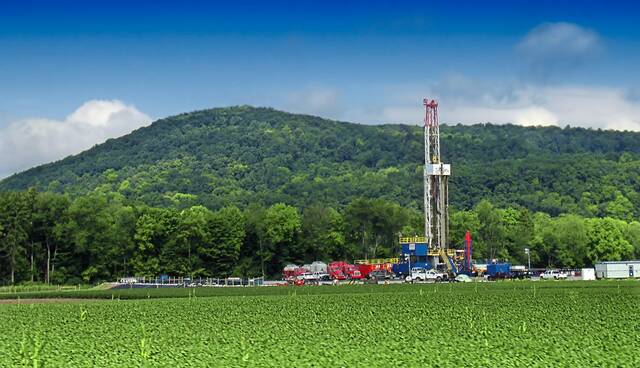The Appalachian Hydrogen Hub, or ARCH2, is sweeping through Pennsylvania with much the same fanfare as the fracking boom back in 2008. Once again, fossil-fuel companies like EQT and CNX are promising our region groundbreaking new ways to produce cleaner energy, supercharge job growth, and revolutionize the region’s economy.
In reality, though, the promises of cutting-edge, climate-forward technology are more of the same — false solutions that carry significant environmental and health costs with no offsetting economic benefits.
The “blue” hydrogen ARCH2 plans to produce is made from fracked fossil gas, using experimental carbon capture technology to try to reduce some greenhouse gas emissions. Far from being climate-friendly, studies show blue hydrogen is actually dirtier than burning gas or coal for heating. And it means even more of the polluting fracking infrastructure that has harmed the health of our families and neighbors for over a decade.
Dozens of epidemiological studies and hundreds of additional investigations have made clear the connections between shale gas development and serious health impacts for nearby residents, including respiratory illnesses, heart complications, mental health issues, cancer and birth defects.
Just last year, a set of studies from the University of Pittsburgh’s School of Public Health found that children who lived within a mile of one or more wells were up to seven times more likely to develop lymphoma, a rare type of cancer, than children who lived more than five miles from a well. People with asthma had a four to five times greater chance of having an asthma attack if they lived near producing fracking wells.
With as many as 1.5 million Pennsylvanians living within a half-mile of an oil or gas well, the scope of the problem is enormous.
Since the beginning of the fracking boom, industry boosters and elected officials have tried to justify these unacceptable health risks by pointing to the economic importance of fossil gas. Industry-funded studies said the fracking boom would create hundreds of thousands of jobs, flooding the region with economic growth.
Today, it’s increasingly clear that promises of jobs and prosperity haven’t panned out. Data show the 22 largest fracking counties in Ohio, Pennsylvania and West Virginia have collectively lost more than 10,000 jobs and nearly 47,000 residents since the beginning of the gas boom in 2008. In all, oil and gas industry jobs account for just 1.4% of Pennsylvania’s total jobs.
The industry told us an economic boom would make up for the air, water and soil pollution that poisons our communities. For more than a decade, they’ve failed us. The good news is that we have other options. Alternative models of economic development, ones that center families and communities instead of fossil-fuel corporations, have been proven to generate job and income growth. And they do so by investing in renewable energy, efficiency upgrades and other sectors that make our region a cleaner, safer, healthier place to live.
Our region can’t afford more fracking pollution and more false promises from the ARCH2 hydrogen hub. That’s why we, along with more than 50 Appalachia-based groups and community organizations, have called for a suspension of ARCH2 plans until we’re given more information and a chance to make our concerns heard.
Appalachian families deserve clean air, fresh water and a healthy economy that works for all. It’s time to build a better future.
Talor Musil is field manager at the Southwestern Pennsylvania-based nonprofit public health organization Environmental Health Project. Sean O’Leary is senior researcher on gas and petrochemicals at the Ohio River Valley Institute, a nonpartisan regional think tank.








